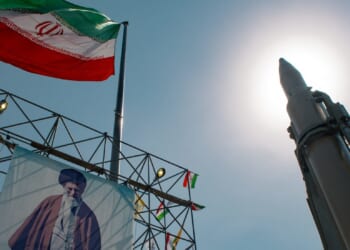“Each individual Christian and every community is called to be an instrument of God for the liberation and promotion of the poor.” That was the late Pope Francis in Evangelii Gaudium (“The Joy of the Gospel”). Unfortunately, Francis’s conception of “liberation” involved massive wealth redistribution through high taxes, which harms the upward mobility of the poor.
In a 2014 U.N. address, Francis called for “redistribution of economic benefits by the State.” In 2017, he characterized private philanthropy as mere “crumbs.” The pope was not alone in viewing government redistribution as legitimate and necessary to combat poverty, but decades of experience show this approach to be a moral and practical failure.
Foreign aid, often government-to-government transfers, props up dictatorial and kleptocratic governments that murder and steal from their own people. Transfers by governments and multinational bodies often line the pockets of the cronies of corrupt rulers at the expense of what Francis called the “discarded people.”
The government-coerced-redistribution model favored by Francis has left a path of dependency and destruction everywhere it has been pursued. History teaches that redistribution by politicians does not end poverty or create prosperity. The truth is that massive government programs to “fight” poverty are impersonal, inhumane, and counterproductive, undermining true compassion and human dignity in the process.
Pope Francis failed to note that wealth must first be created before it can help others.
Capitalism, propelled by entrepreneurs, is the greatest wealth creator the world has seen, lifting billions of people out of abject poverty during the past three decades alone as market liberalization spread worldwide. The most effective anti-poverty program is a job. The most effective development strategy is sustained private investment by market-based entrepreneurs.
In countries with greater economic freedom, where entrepreneurship thrives and private property is secure, individuals accumulate more wealth, have more to give, and donate on a massive scale to help the disadvantaged. When politicians around the world undercut capitalism by raising taxes or assaulting private property rights, they attack the heart of effective private charity.
The greater abundance that capitalism affords allows people to increase their charitable giving. Capitalism reinforces the civic virtues that Francis promoted so well around the world.
Government redistribution — whether through domestic welfare programs, foreign aid, or other means — is neither “giving” nor “charity” in the strict sense of those words. It, in fact, is the opposite, requiring the government to first take somebody else’s money, either through taxes or borrowing (future taxes). This requires force, violating the commandment “Thou shalt not steal.”
Jesus, in the Parable of the Good Samaritan (Luke 10: 25-37), said people should follow the example of the Good Samaritan, who spent his own time and money to help a stranger in distress. True compassion is self-sacrifice: “to suffer with.” There’s nothing compassionate about using the government to seize one person’s money or property to give it to someone else.
Voluntary charitable giving ensures that assistance reflects the values of donors, not the self-interest of politicians and bureaucrats.
It encourages innovation and competition among private support organizations to best address the suffering of the poor and others. Perhaps most important, voluntary charity requires a personal recognition of the plight of others and self-sacrifice, chosen freely, to help those in need. This personal action nurtures true compassion, moral integrity, and a more caring society.
However well-intended, Pope Francis was wrong to seek a larger role for government in the economy and in assistance for the poor because it pits one group against another, tearing apart the social fabric. The resulting high taxes slow economic growth and shrink the surplus that people use to start businesses, hire employees, and support causes they care deeply about through effective voluntary giving. Francis’s approach brings more suffering, not less, undercutting his call to help the poor.
Capitalism is one of the greatest blessings in human history. Instead of attacking markets and promoting larger and more powerful centralized governments, the next pope should call for the expansion of economic freedom and secure private property rights. That will best boost effective giving, alleviate poverty, and improve the well-being of those less fortunate around the world.
Lawrence J. McQuillan is a senior fellow with the Independent Institute in Oakland, Calif., and a contributor to the book Pope Francis and the Caring Society.
READ MORE:
Nigeria: The Most Dangerous Place To Be a Christian
Pope Francis Equates Opposition to Illegal Immigration to Abortion



![‘It’s a Recipe for a Hundred Years of National Dominance’: Stephen Miller [WATCH]](https://www.right2024.com/wp-content/uploads/2025/05/Stephen-Miller-Completely-Obliterates-CNN-Host-Over-Her-Illegal-Immigration-350x250.jpg)


![Trump Posts Hilarious Pope Meme, Leftists Immediately Melt Down [WATCH]](https://www.right2024.com/wp-content/uploads/2025/05/Trump-Posts-Hilarious-Pope-Meme-Leftists-Immediately-Melt-Down-WATCH-350x250.jpg)
![Pentagon Begins Booting Trans Troops After Supreme Court Greenlights Ban [WATCH]](https://www.right2024.com/wp-content/uploads/2025/05/Pentagon-Begins-Booting-Trans-Troops-After-Supreme-Court-Greenlights-Ban-350x250.jpg)








